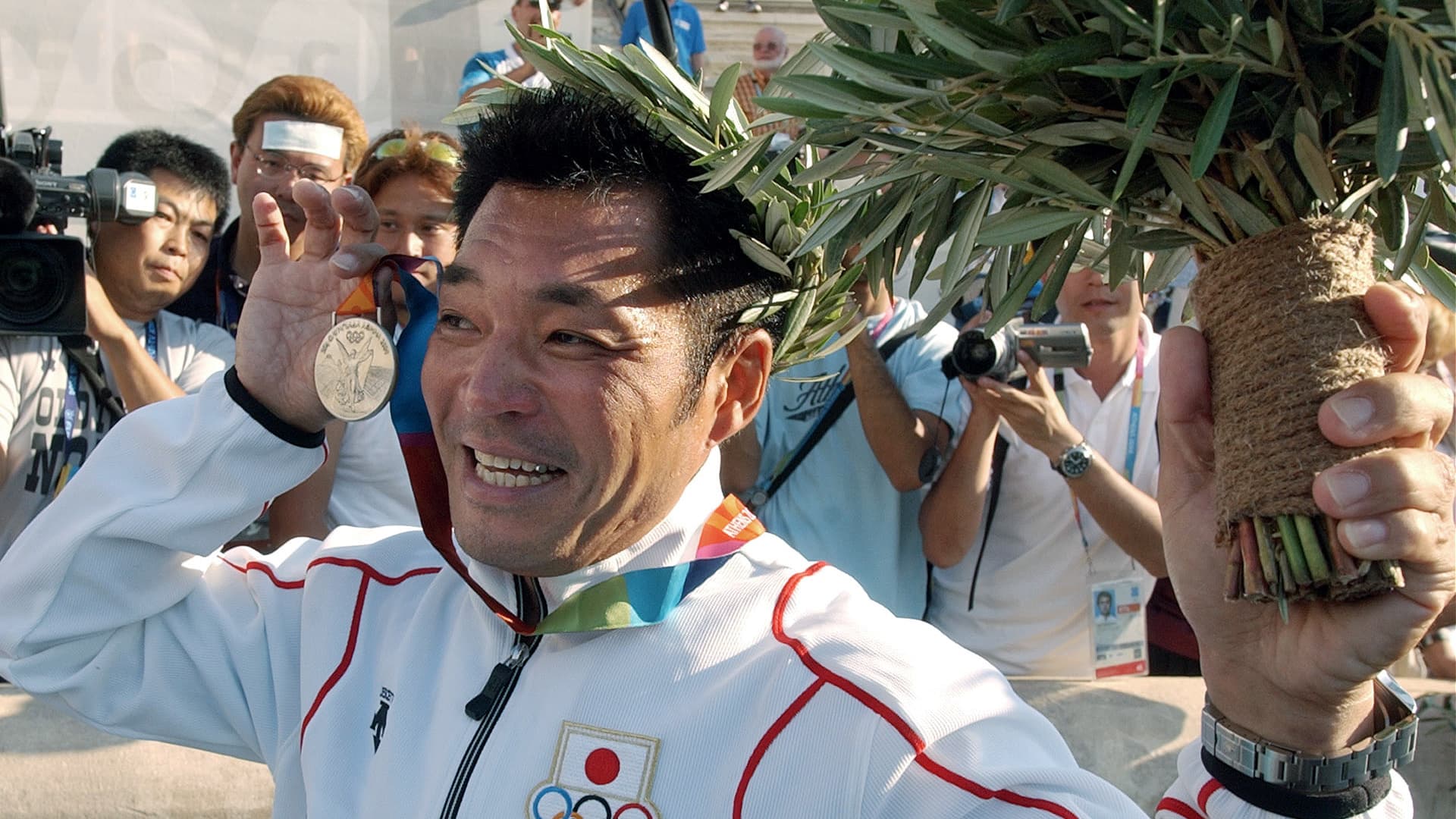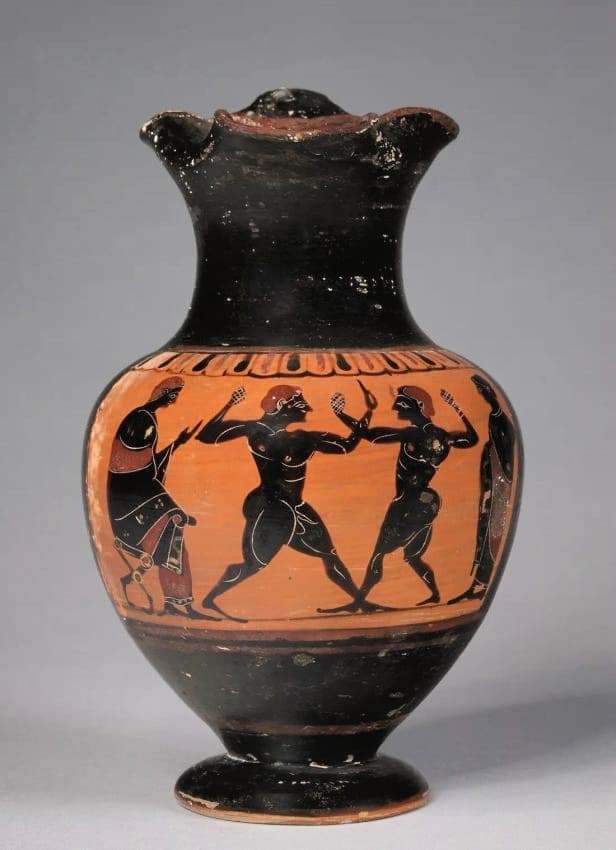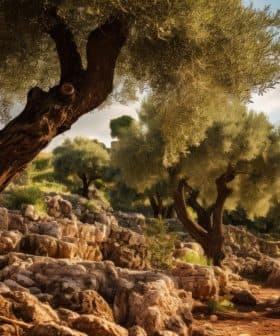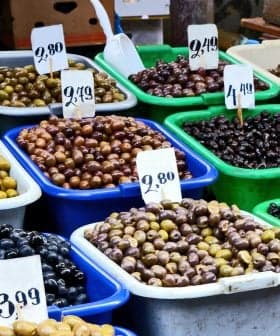 8.3K reads
8.3K readsBasics
The Olive Tree and The Olympics: An Ancient Bond

The article discusses the origins of the Olympic Games in ancient Greece, where they were held every four years as part of a religious festival to honor Zeus. The games were associated with the olive tree, which was considered sacred and symbolized peace, unity, and heroism, and its legacy continues to be honored in modern Olympic Games through traditions like decorating winners with olive wreaths and featuring olive branches on medals.
The Olympic Games is the leading international multi-sport event and the ultimate global celebration of athleticism and unity.
In ancient Greece, where the Olympics began around 2,800 years ago, they were a major sport, cultural and political event.
According to Greek mythology, the Olympic Games became inextricably linked with the olive tree, the goddess of wisdom, Athena’s gift to the city of Athens.
See Also:Olive Oil Production Returns to Pompeii 2,000 Years After Volcanic EruptionThe origins of the games can be traced back to the sanctuary of Olympia in the southern Peloponnese peninsula, where the first recorded Olympic Games were held in 776 BC.
The games were part of a religious festival to honor Zeus, the father of the Greek gods and goddesses. For the ancient Greeks, training the body and mind was a crucial aspect of child education.
“The ideal of heroism was deeply embedded in the minds of the ancient Greeks,” Anna Gustafsson, a Finnish archaeologist and writer based in Athens, told Olive Oil Times.
“There were no team sports in the ancient Olympic Games,” she added. “Instead, the competitors were striving for individual glory. The events tested strength, endurance, courage, and speed, exactly the qualities celebrated in a heroic soldier.“
“For boys from upper-class families, practicing sports was vital to their upbringing and prepared them for combat,” Gustafsson said.
Delegations and athletes from ancient Greek city-states would march for days to appear in the games at Olympia. Held every four years, the quadrennial periodicity of the games allowed athletes to train for the next edition.
The Olympic Games were so important to the ancient Greeks that they used them as their calendar. For example, they would say, “the third year of the 21st Olympiad,” to indicate that three years had passed since the last Olympics were held.
Hostilities between the Greek city-states of the time would also cease during the games so that athletes and spectators could participate undistracted.
“At the time, Greece had no central government,” Gustafsson said. “Instead, the country was run by independent city-states, which were often in conflict with each other.”
“However, culturally, the ancient Greek world was unified,” she added. “This was partly thanks to the Panhellenic festivals that brought Greeks together in peaceful celebration and reminded them of everything they had in common, such as religion and ideals.”
Gold medal glory has not always been the case at the Olympic Games. In ancient Greece, the typical prize for the game winners was a wreath made with intertwined olive branches from wild olive trees that grew at Olympia.
“There are many depictions of this in pottery paintings of the time,” Gustafsson said.
“Winners could also receive valuable prizes such as an amphora filled with olive oil, processions in their honor, bronze shields, or tripods.”
The olive tree was considered sacred in ancient Greece and associated with peace and unity. Supplicants also held olive branches in temples or when approaching persons of power to indicate their status.
The olive branch, used to honor the winners of the ancient Olympic Games, also indicated the olive tree’s more profound significance in ancient Greece.
Particularly in Athens, the olive gained political importance, as expressed by the laws passed to protect the trees. Whoever destroyed an olive tree faced the death penalty. Olive tree owners were not allowed to cut more than two feet (0.6 meters) from a tree in any one year; otherwise, they would face hefty fines.
Historians have identified the relationship between the olive tree and the Attica region as the beginning of a group of people — the then rulers of Athens — controlling a space.
Space (the land) subsequently substituted bloodline and wealth as Athens’s primary political power source.
Statesman Cleisthenes based the constitutional framework he introduced to the Athenians in the 6th century BC, which finally led to the birth of democracy, on the strong connection in the city-state of Athens between spatial control and citizenship.

Ancient Greek wine jug from the 6th century BC depicting a boxing fight (Photo: Cleveland Museum of Art)
The olive tree was also an important food source for the ancient Greeks, who primarily lived on olives, grapes used to make wine, and some grain, either barley or wheat.
Olive oil was used in food preparation and served multiple religious and practical purposes in ancient Greek society.
“The significance of the olive oil in ancient Greece cannot be over-emphasized,” Gustaffson said. “I don’t think that in our modern world, we have any material that is sacred, practical and an important economic commodity all at the same time.”
“Olive oil could be a sacred gift to gods and used as a libation at sanctuaries like Olympia,” she added. “Before athletic practice, the athletes would anoint their bodies with olive oil to prepare their skin. They also cleaned themselves after sweating by rubbing their skin with a mixture of olive oil and sand and then scraping the dirt off.”
At the time, the average annual consumption of olive oil for a citizen of a city-state totaled 40 to 50 liters: 15 to 20 liters were used for food preparation, another 20 liters for hygiene, two liters in ceremonies, three liters for lamps and 0.5 liters for medical purposes.
Gustafsson noted that olive oil, wine and pottery were among the most important commodities for international trade in ancient Greece.
“Trade with neighboring countries was one reason prosperous civilizations flourished in Greece during the Bronze Era,” she said. “So, olive oil was one of the main drivers of life in Greece.”
The legacy of the olive tree in the Olympic Games has endured through the millennia.
In the 2004 Olympics held in Athens, along with their medals, the winners were symbolically decorated with an olive wreath, paying homage to the ancient tradition.
In 2021, an olive tree was planted in the garden of the Olympic House in Paris ahead of the 2024 Olympics to symbolize peace and the games’ universality.
“Some Olympic medals, such as those in Atlanta in 1996, also featured an olive branch as a universal symbol of the spirit of the Olympics,” Gustafsson said.
“The roots of combining the Olympics and peace are in the ancient Olympics,” she added. “Remember that during the games, the ancient Greek city-states observed a month-long peace during the games, and all atrocities ceased.”
From hundreds of Olympic athletes from war-torn countries who gathered together during the 2024 Paris Olympics calling for peace to athletes such as mountain climber Jimmy Chin and world-famous tennis player Rafael Nadal, who have praised the importance of olive oil in their diet, the versatility of the olive tree as a timeless symbol of peace and the foundation of a healthy diet is still present in today’s Olympic Games and sports.









